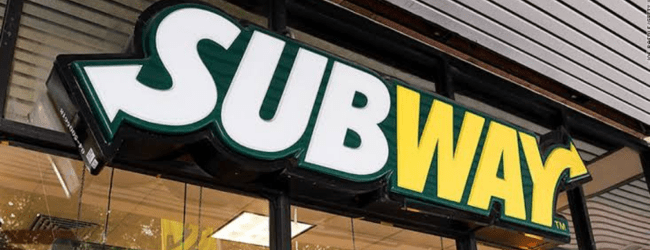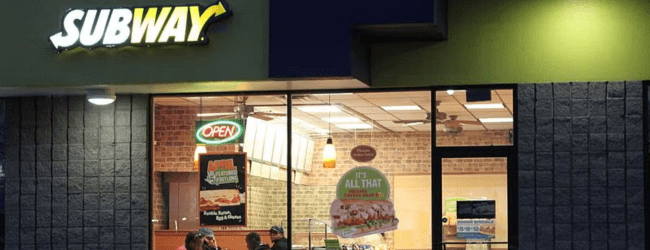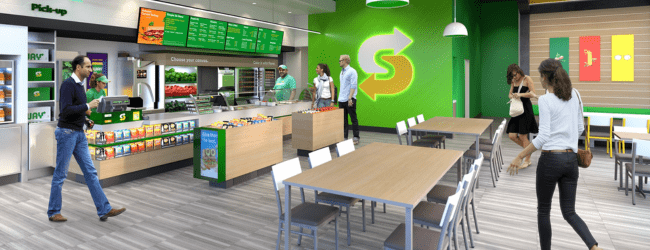Table of contents
- Why Choose a Subway Franchise in India?
- Understanding the Costs Involved
- Eligibility Criteria to Become a Subway Franchisee in India
- Step-by-Step Guide to Starting Your Subway Franchise
- Potential Profitability of a Subway Franchise in India
- Key Factors for Success as a Subway Franchisee
- Conclusion
- Frequently Asked Questions (FAQs)
Are you looking to tap into the booming fast-food market in India with a globally recognised brand? A subway franchise could be your perfect opportunity. Subway, known for its customizable submarine sandwiches and salads, has a significant presence in India and continues to expand. This comprehensive guide will walk you through the costs, eligibility criteria, the step-by-step process of starting your own Subway franchise in India, potential profits, and much more.
Why Choose a Subway Franchise in India?

Subway is one of the world’s largest restaurant chains, and its brand recognition offers several advantages for franchisees in India:
- Global Brand Recognition: Leverage the trust and familiarity associated with the Subway name.
- Established Operating System: Benefit from proven business models, operational procedures, and marketing strategies.
- Extensive Training and Support: Receive comprehensive training and ongoing support from Subway’s experienced team.
- Adaptable Menu: Subway’s menu can be adapted to cater to local Indian tastes and preferences, including vegetarian options.
- Strong Supply Chain: Access to a well-established supply chain ensures consistent quality and cost-effectiveness.
- Growth Potential: The fast-food industry in India is experiencing significant growth, offering ample opportunities for expansion.
Understanding the Costs Involved
Investing in a subway franchise requires a significant financial commitment. Here’s a breakdown of the typical costs involved in India:
- Franchise Fee: This is a one-time fee paid to Subway for the right to operate under their brand name and system. The initial franchise fee for a Subway in India can range from INR 6.5 lakhs to INR 10 lakhs.
- Equipment Costs: Setting up your Subway outlet requires purchasing various equipment, including ovens, refrigerators, display counters, point-of-sale (POS) systems, and furniture. This can cost anywhere between INR 7 lakhs to INR 15 lakhs.
- Leasehold Improvements: This includes the cost of renovating and customising the leased space to meet Subway’s brand standards. These costs can vary significantly based on the location, size, and condition of the premises, potentially ranging from INR 5 lakhs to INR 12 lakhs.
- Initial Inventory: You’ll need to stock up on food supplies, packaging materials, and other essential items to start operations. This initial inventory cost could be around INR 1.5 lakhs to INR 3 lakhs.
- Marketing and Promotion: You’ll need to allocate funds for initial marketing and promotional activities to create awareness about your new outlet. This could range from INR 50,000 to INR 1 lakh.
- Working Capital: It’s crucial to have sufficient working capital to cover initial operating expenses such as rent, utilities, salaries, and supplies until your business becomes profitable. Experts often recommend having at least 3-6 months of operating expenses in reserve, which can range from INR 2 lakhs to INR 5 lakhs or more, depending on your location and scale.
- Royalty Fees: Subway typically charges a weekly royalty fee based on a percentage of your gross sales. This is usually around 8% of gross sales.
- Advertising Fund Contribution: Franchisees are also required to contribute a percentage of their gross sales towards a national advertising fund, which is typically around 4.5% of gross sales.
It’s important to note that these are estimated costs, and the actual figures can vary depending on factors such as location (metro cities tend to have higher real estate costs), the size of the outlet, and specific requirements.
Eligibility Criteria to Become a Subway Franchisee in India
Subway looks for individuals with a strong entrepreneurial spirit and the dedication to operate their business according to Subway’s standards. While specific criteria may vary, here are some common requirements:
- Financial Capacity: You need to demonstrate the financial capability to cover the initial investment and ongoing operating expenses. This typically involves having sufficient liquid assets and a good credit history.
- Business Acumen: While prior restaurant experience isn’t always mandatory, having some business management or customer service experience is often preferred.
- Commitment and Dedication: Running a successful franchise requires hard work, dedication, and a willingness to follow Subway’s established system.
- Entrepreneurial Drive: Subway seeks individuals who are motivated, proactive, and have a strong desire to succeed.
- Willingness to Learn and Follow the System: Franchisees must be willing to undergo Subway’s training program and adhere to its operational guidelines and standards.
- No Specific Educational Qualification: While a degree isn’t strictly required, a basic understanding of business principles is beneficial.
ALSO READ – Haldiram Franchise in India: Cost, Requirements, Profit Margin & More
Step-by-Step Guide to Starting Your Subway Franchise

Here’s a detailed breakdown of the process involved in starting your subway franchise in India:
1 . Research and Initial Inquiry:
- Thorough Market Research: Before reaching out to Subway, conduct your own research on the fast-food market in your target area. Understand the competition, customer preferences, and potential demand for Subway’s offerings.
- Explore Subway’s Official Channels: Visit the official Subway India website (if available) or the global Subway franchise website. Look for information specific to franchising in India. Many brands have dedicated franchise inquiry sections.
- Contact the Franchise Development Team: Reach out via the contact information provided. Be prepared to provide basic details about yourself, your location of interest, and your financial capacity.
- Initial Information Gathering: Request preliminary information such as franchise brochures, investment details, and the general process involved.
Subway India website – Check Out
2 . Application and Qualification:
- Detailed Application Form: You will receive a detailed application form that will require comprehensive information about your personal and financial background, business experience (if any), and your motivation for wanting a subway franchise.
- Financial Documentation: Be prepared to provide supporting financial documents such as bank statements, tax returns, and asset details to demonstrate your financial capability to meet the investment requirements.
- Background Check: Subway may conduct a background check as part of its due diligence process.
- Initial Interview: You might have an initial phone or video interview with a Subway franchise development representative to discuss your application and answer preliminary questions.
3 . Discovery Meeting:
- In-Person or Virtual Meeting: This is a crucial step where you’ll meet with Subway representatives, possibly including franchise managers and regional developers.
- Franchise System Overview: Subway will provide a detailed overview of their franchise system, including their business model, operational procedures, marketing strategies, and support structure.
- Your Opportunity to Ask Questions: This is your chance to ask in-depth questions about all aspects of the franchise, including costs, fees, training, support, and expectations.
- Mutual Assessment: Both you and Subway will be evaluating whether this partnership is a good fit.
4 . Franchise Disclosure Document (FDD) Review:
- Legal and Financial Document: The FDD is a legally binding document that provides you with crucial information to make an informed decision.
- Key Information Included:
- Franchisor background and experience.
- Fees and costs involved (initial fee, royalties, advertising, etc.).
- Obligations of both the franchisor and the franchisee.
- Estimated initial investment range.
- Territory rights (if any).
- Renewal, termination, and transfer conditions.
- Audited financial statements of the franchisor (important for assessing their financial health).
- Contact information of existing franchisees (allowing you to get firsthand feedback).
- Professional Consultation: It is absolutely essential to have the FDD reviewed by an independent legal and financial advisor who specialises in franchising. They can help you understand the terms and conditions, identify potential risks, and ensure that it aligns with your interests.
5 . Financial Arrangement and Agreement:
- Securing Financing: If you require financing, you will need to secure the necessary funds through personal savings, loans from financial institutions, or other investment sources. Subway may have relationships with certain lenders.
- Negotiation (Limited): While the core terms of the franchise agreement are usually standardised, there might be some limited scope for negotiation on certain aspects. Your legal advisor can guide you here.
- Signing the Franchise Agreement: Once you are satisfied with the terms and have secured financing, you will sign the franchise agreement. This legally binds you to operate your Subway outlet according to their rules and regulations.
6 . Site Selection:
- Subway’s Criteria: Subway has specific criteria for evaluating potential locations, focusing on factors like:
- Visibility: High visibility from main roads and pedestrian traffic.
- Accessibility: Easy access for vehicles and pedestrians, including parking.
- Foot Traffic: Proximity to offices, schools, shopping centres, residential areas, and transportation hubs.
- Demographics: Assessing the local population density, income levels, and target customer base.
- Competition: Analysing the existing fast-food landscape in the area.
- Size and Layout Requirements: Ensuring the space meets Subway’s specifications for kitchen, seating, and storage.
- Joint Evaluation: Subway’s real estate team will often work closely with you to evaluate potential sites. They may provide market research data and guidance.
- Lease Negotiation: You will be responsible for negotiating the lease agreement with the landlord. It’s crucial to have a clear understanding of the lease terms, including rent, security deposit, and maintenance responsibilities. Seek legal counsel to review the lease agreement.
7 . Training Program:
- Comprehensive Curriculum: Subway’s training program is designed to equip you and your designated manager with all the necessary skills to operate a successful outlet.
- Key Areas Covered:
- Food preparation and safety standards.
- Customer service and order-taking procedures.
- Point-of-sale (POS) system operation.
- Inventory management and ordering.
- Staff hiring and training.
- Marketing and promotional activities.
- Operational procedures and Subway’s best practices.
- Financial management and reporting.
- Training Location and Duration: Training may take place at Subway’s regional training centres or online, and the duration can vary depending on the program structure.
- Ongoing Training: Subway often provides ongoing training and updates on new products, procedures, and technologies.
8 . Outlet Setup and Build-out:
- Design and Layout: Subway will provide you with specific design and layout guidelines to ensure brand consistency across all outlets.
- Contractor Selection: You will be responsible for hiring contractors to carry out the necessary renovations and build-out according to Subway’s specifications.
- Permits and Approvals: Ensure you obtain all the required permits and approvals from local authorities before commencing any construction or renovation work.
- Regular Inspections: Subway’s representatives may conduct inspections during the build-out process to ensure compliance with their standards.
9 . Equipment Purchase and Installation:
- Approved Suppliers: Subway typically has a list of approved suppliers for the required equipment. This ensures quality and compatibility.
- Ordering and Installation: You will need to order the necessary equipment (ovens, refrigerators, display units, POS systems, etc.) and manage their delivery and installation.
- Software Setup: Ensure the POS system and other necessary software are installed and configured correctly.
10 . Pre-Opening Marketing and Hiring:
- Develop a Marketing Plan: Work with Subway’s marketing team to develop a pre-opening marketing plan to create buzz and awareness in your local community. This might include local advertising, social media campaigns, and community outreach.
- Recruit and Train Staff: Begin the process of hiring your staff, including sandwich artists, cashiers, and potentially a shift manager. Conduct thorough interviews and background checks.
- Initial Staff Training: Provide initial training to your staff on Subway’s food preparation, customer service, and operational procedures, even before the official opening.
11 . Grand Opening:
- Coordinate with Subway: Work with Subway’s support team to plan your grand opening event. They may provide marketing materials and guidance.
- Promotional Activities: Implement your pre-opening marketing plan to attract customers on your opening day. This might include special offers or events.
- Smooth Launch: Ensure all staff are well-trained and prepared to handle the initial rush of customers.
12 . Ongoing Operations and Support:
- Adherence to Standards: Continuously adhere to Subway’s operational standards, food quality guidelines, and customer service protocols.
- Regular Reporting: You will likely be required to submit regular sales and financial reports to Subway.
- Ongoing Support: Subway will provide ongoing support in areas like marketing campaigns, new product launches, operational advice, and access to their supply chain.
- Performance Monitoring: Regularly monitor your outlet’s performance against key metrics and identify areas for improvement.
By understanding these detailed steps, you can gain a clearer picture of the commitment and effort required to successfully launch and operate a subway franchise in India. Remember to seek professional advice at each crucial stage to ensure you make informed decisions.
ALSO READ | How to Start a Franchise Business: Invest Small, Earn Big with 8 Simple Steps
Potential Profitability of a Subway Franchise in India

The profitability of a subway franchise in India can vary significantly based on several factors, including:
- Location: High-traffic areas with strong visibility generally lead to higher sales.
- Operating Efficiency: Efficient management of food costs, labour, and other expenses directly impacts profitability.
- Customer Service: Excellent customer service can lead to repeat business and positive word-of-mouth.
- Marketing Efforts: Effective local marketing initiatives can drive sales growth.
- Competition: The level of competition in your area can influence your market share and profitability.
Real Business Example: Consider a Subway outlet located in a busy commercial area in Bangalore. If this outlet generates average monthly sales of INR 5 lakhs, with a 15% profit margin, the franchisee could potentially earn a profit of INR 75,000 per month. However, this is just an illustrative example, and actual results may vary.
Key Factors for Success as a Subway Franchisee
- Strong Management: Effective leadership and management skills are crucial for smooth operations and profitability.
- Excellent Customer Service: Providing a positive and consistent customer experience is key to building loyalty.
- Adherence to Subway’s Standards: Maintaining Subway’s quality standards and operational procedures is essential for brand consistency and customer satisfaction.
- Effective Local Marketing: Implementing targeted local marketing strategies to attract and retain customers is vital.
- Cost Control: Efficiently managing food costs, labour, and other expenses is crucial for maximising profitability.
- Adaptability: Being able to adapt to local market conditions and customer preferences can enhance success.
Need Expert Guidance?
Starting a business can be challenging, but you don’t have to do it alone! At Boss Wallah, our 2,000+ business experts are ready to provide valuable insights and guidance. Whether you need help with marketing, finance, sourcing, or any other area of business, our business experts are here to help you succeed. Check Out
Confused about Which Business to Start?
Want to start your own business but unsure which one to choose? Explore Boss Wallah, where you’ll find 500+ courses by successful business owners, featuring practical, step-by-step guides on starting and growing various businesses.
Find your perfect business idea today – Check Out
Conclusion
Investing in a subway franchise in India presents a compelling opportunity to partner with a globally recognised brand in a growing market. While it requires a significant financial investment and dedication, the established business model, training, and ongoing support offered by Subway can provide a solid foundation for entrepreneurial success. By understanding the costs, eligibility criteria, and the step-by-step process, you can make an informed decision and embark on your journey to owning a thriving Subway franchise in India. Remember, thorough research, careful planning, and a strong commitment to operational excellence are key ingredients for success in the franchise business.
Frequently Asked Questions (FAQs)
1 . What is the total investment required to start a Subway franchise in India?
- The total investment can range from approximately INR 23 lakhs to INR 46 lakhs or more, depending on factors like location and outlet size. This includes the franchise fee, equipment costs, leasehold improvements, initial inventory, and working capital.
2 . Is prior restaurant experience necessary to own a Subway franchise?
- While not always mandatory, having some business management or customer service experience is beneficial. Subway provides comprehensive training to equip franchisees with the necessary skills.
3 . How much royalty fee does Subway charge in India?
- Subway typically charges a weekly royalty fee of 8% of gross sales.
4 . What is the advertising fund contribution for Subway franchisees in India?
- Franchisees are usually required to contribute 4.5% of their gross sales towards a national advertising fund.
5 . How long does it take to open a Subway franchise after signing the agreement?
- The timeline can vary, but it typically takes 3 to 6 months from signing the franchise agreement to opening your outlet, depending on factors like site selection, lease negotiations, and build-out.
6 . Does Subway provide support in site selection?
- Yes, Subway actively works with franchisees to identify suitable locations based on their established criteria.
7 . What kind of training and support does Subway offer to its franchisees?
- Subway provides comprehensive initial training covering operations, food preparation, customer service, and management. They also offer ongoing support in areas like marketing, new product development, and operational guidance.
8 . What is the typical term of a Subway franchise agreement?
- The initial term of a Subway franchise agreement is typically 20 years, with an option for renewal subject to certain conditions.
9 . Can I sell my Subway franchise in the future?
- Yes, you can typically sell your franchise, but the sale is usually subject to Subway’s approval and transfer requirements.
10 . What are some of the popular vegetarian options available at Subway in India?
- Subway in India offers a variety of popular vegetarian options such as the Veggie Delite, Paneer Tikka, Corn and Peas, and Hara Bhara sub. They also offer customizable salad options.


